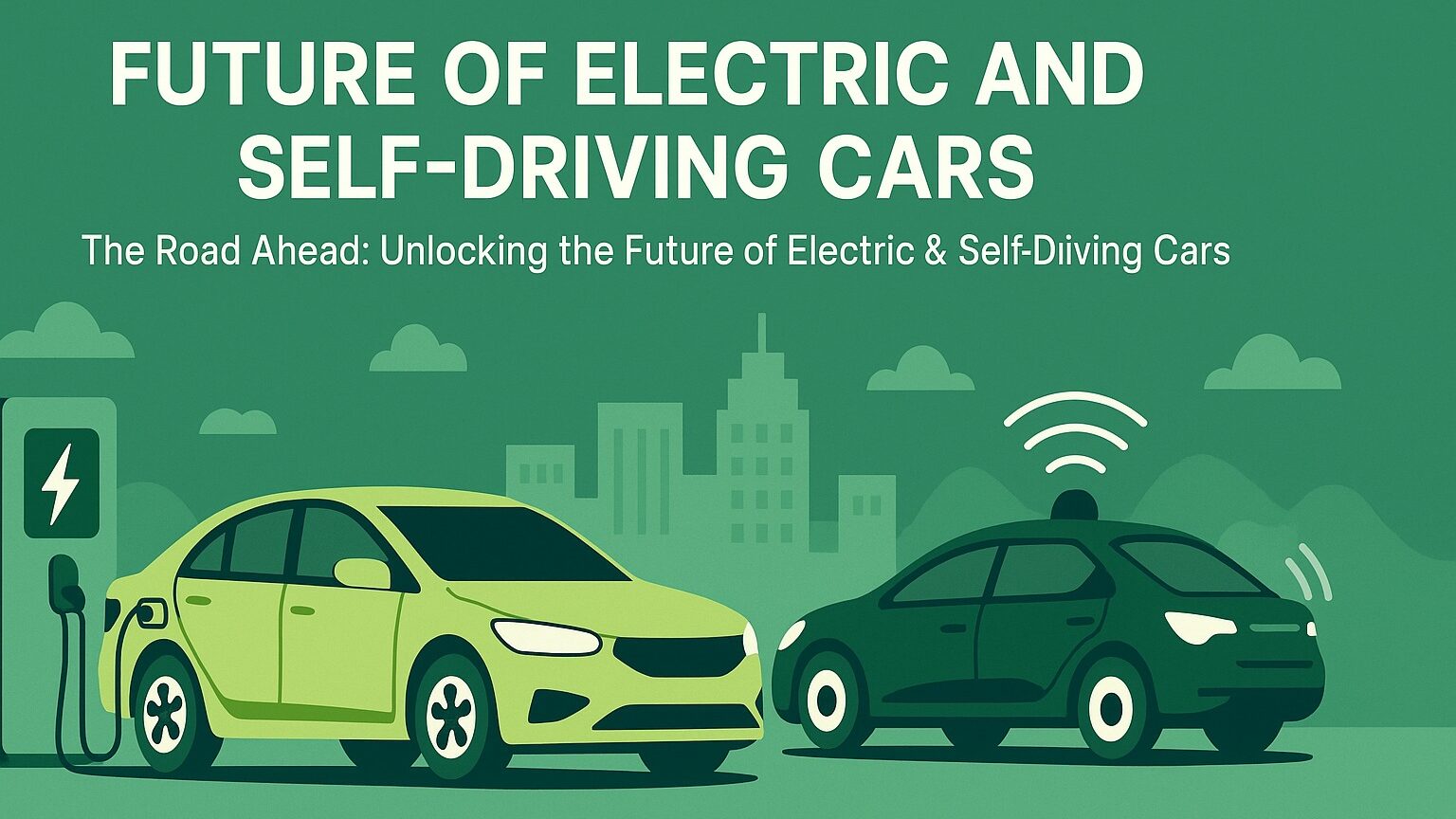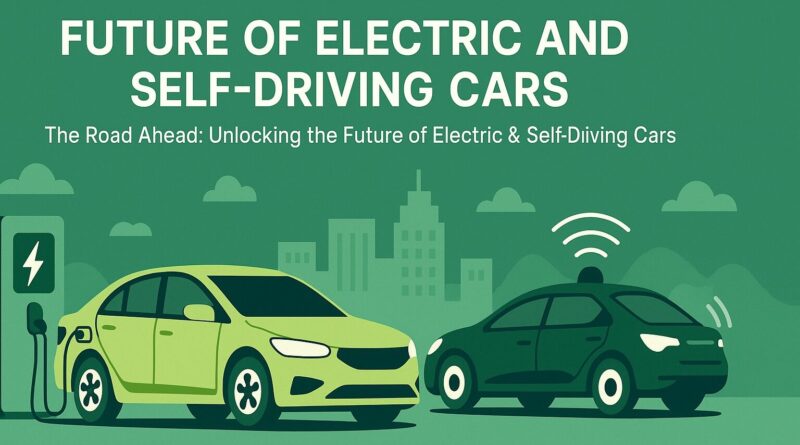Future of Electric and Self-Driving Cars
The Road Ahead: Unlocking the Future of Electric & Self-Driving Cars
Get ready to hit the gas on innovation! The automotive world is undergoing a seismic shift, and at the heart of this revolution are two game-changing technologies: electric vehicles (EVs) and self-driving cars. This isn’t science fiction anymore; it’s the future of transportation, and it’s happening right now.
The Electric Revolution: Powering a Cleaner Tomorrow
For years, EVs were seen as a niche product. But that’s all changing. Today, electric cars are no longer just a trend; they are a powerful movement toward a more sustainable and eco-friendly world.
Why are EVs the talk of the town?
- Eco-Friendly Performance: EVs produce zero tailpipe emissions, helping to combat air pollution and climate change. This is a massive win for our planet and our health.
- Cost Savings: While the initial cost of an EV can be higher, you’ll save a significant amount on fuel and maintenance. Say goodbye to expensive gas, oil changes, and tune-ups. Charging your car is far cheaper than filling it up.
- Advanced Technology: Modern EVs are packed with cutting-edge tech, from sleek digital dashboards to instant torque that delivers a thrilling driving experience.
- Expanding Infrastructure: “Range anxiety” is quickly becoming a thing of the past. Governments and private companies are investing heavily in a vast network of charging stations, making long-distance travel easier than ever before.
The Self-Driving Leap: Reclaiming Our Time
Imagine a world where your daily commute is no longer a stressful, traffic-filled ordeal. Instead, it’s a chance to catch up on work, relax with a movie, or simply enjoy the scenery. This is the promise of self-driving cars, or autonomous vehicles (AVs).
How will self-driving cars transform our lives?
- Unprecedented Safety: The vast majority of accidents are caused by human error. AVs, with their 360-degree cameras, radar, and advanced AI, can react faster and more precisely than any human driver, leading to a dramatic reduction in road fatalities.
- Traffic Flow and Efficiency: Autonomous cars will communicate with each other and with city infrastructure, creating a perfectly synchronized flow of traffic. This will reduce congestion, saving countless hours and tons of wasted fuel.
- Accessibility for All: Self-driving technology will provide a new level of freedom and mobility for the elderly, people with disabilities, and anyone who cannot drive.
- New Urban Landscapes: With a reduced need for parking lots and garages, cities can repurpose that space for parks, green spaces, and housing. Our cities will become more human-centric and enjoyable places to live.
The Road Ahead: Challenges and Opportunities
Of course, this transformation isn’t without its challenges. Widespread adoption of these technologies will require:
- Infrastructure Upgrades: We need smarter roads and a more robust power grid to support millions of EVs and AVs.
- Evolving Regulations: Governments will need to create new laws and standards for autonomous vehicles to ensure safety and accountability.
- Public Trust: Building confidence in these new technologies is crucial. People need to feel safe and secure sharing the road with self-driving cars.
The Takeaway
The future of electric and self-driving cars is not just about new vehicles; it’s about a complete rethinking of how we live, work, and move. We are on the verge of a new era in mobility that promises a cleaner, safer, and more efficient world. The journey has just begun, and the destination is more exciting than we can possibly imagine.





The future of electric and self-driving cars is truly exciting! With rapid EV innovation and autonomous vehicle technology evolving every year, we’re heading toward a more sustainable and intelligent transportation system. I’m especially curious about how AI in self-driving cars will improve road safety and change the future of mobility.